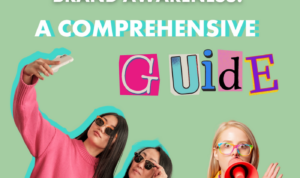Social Proof Strategies takes center stage in the world of marketing, showcasing how brands leverage credibility and influence to captivate their audience. From testimonials to user-generated content, these strategies are essential for businesses looking to make a lasting impact.
Introduction to Social Proof Strategies
Social proof in marketing is all about showing potential customers that others have used and approved of a product or service. It’s like saying, “Hey, look how many people love this, you should too!”
Why is social proof important for businesses? Well, it helps build trust and credibility. When people see that others have had a positive experience, they are more likely to feel confident in making a purchase themselves.
Examples of Social Proof Strategies by Popular Brands
- Customer Reviews: Brands like Amazon and Yelp showcase customer reviews to show how satisfied people are with their products or services.
- Celebrity Endorsements: Companies like Nike use famous athletes to endorse their products, showing that if it’s good enough for them, it’s good enough for you.
- Social Media Mentions: Brands like Starbucks or Apple often share posts from happy customers, demonstrating a strong fan base.
Types of Social Proof

In the world of marketing, different types of social proof play a crucial role in influencing consumer behavior. Let’s explore the various forms of social proof and how they can be effectively utilized in marketing campaigns.
Testimonials
Testimonials are statements from satisfied customers endorsing a product or service. They are powerful as they provide real-life experiences that can build trust with potential customers. Testimonials can be displayed on websites, social media, or in promotional materials to showcase the positive feedback from happy customers.
User Reviews
User reviews are feedback and ratings left by customers who have purchased or used a product or service. They are essential in building credibility and influencing purchasing decisions. Positive reviews can help in boosting sales, while negative reviews can provide valuable feedback for improvement.
Social Media Followers
The number of followers, likes, shares, and comments on social media platforms can also serve as social proof. A large following indicates popularity and trustworthiness, making potential customers more likely to engage with a brand. Social media engagement can be leveraged in marketing campaigns to showcase brand loyalty and credibility.
Expert Endorsements, Social Proof Strategies
When industry experts or influencers endorse a product or service, it can significantly impact consumer perception. Expert endorsements can help in reaching a broader audience and gaining credibility in the industry. Collaborating with influencers or experts in marketing campaigns can enhance brand visibility and reputation.
Certifications and Awards
Certifications, awards, and recognitions from reputable organizations can act as social proof of a brand’s quality and reliability. Displaying certifications and awards on websites, packaging, or promotional materials can instill confidence in potential customers. Recognition from trusted sources can set a brand apart from competitors.
Comparison with Competitors
Highlighting comparisons with competitors through statistics, customer satisfaction ratings, or features can be a powerful form of social proof. Showing how a product or service outperforms competitors can influence purchasing decisions and build trust with consumers. Strategic positioning against competitors can be utilized in marketing campaigns to showcase unique selling points and advantages.
Implementing Social Proof Strategies
To gather and showcase social proof, a business can follow these step-by-step strategies:
Gathering Social Proof
- Encourage satisfied customers to leave reviews and testimonials on your website or social media platforms.
- Create case studies showcasing successful experiences with your products or services.
- Utilize user-generated content such as photos and videos of customers using your products.
- Showcase endorsements from influencers or industry experts who support your brand.
Showcasing Social Proof
- Display customer reviews and ratings prominently on your website, especially on product pages.
- Create a dedicated section for testimonials and success stories to highlight positive feedback.
- Utilize social media widgets to show real-time interactions and reviews from customers.
- Showcase trust badges, certifications, or awards to build credibility and trust with visitors.
Websites and Platforms for Social Proof
- Amazon: Utilizes customer reviews and ratings extensively to influence purchase decisions.
- Yelp: Allows businesses to showcase customer reviews and ratings to attract new customers.
- Instagram: Brands can leverage user-generated content and influencer endorsements to build social proof.
- Google My Business: Provides a platform for businesses to display reviews and testimonials from satisfied customers.
Impact of Social Proof on Consumer Behavior
- Social proof can create a sense of trust and credibility for a brand, influencing purchasing decisions.
- Positive reviews and testimonials can reassure potential customers about the quality and reliability of a product or service.
- Seeing others endorse a brand or product can create a “bandwagon effect,” where consumers are more likely to follow suit.
- Social proof can also help differentiate a brand from competitors and establish a loyal customer base.
Leveraging Influencers for Social Proof: Social Proof Strategies
In today’s digital age, influencers have become a powerful tool for businesses looking to build social proof and credibility. By leveraging influencers, brands can reach a wider audience and establish trust among consumers. Let’s dive into how influencer marketing can serve as a powerful form of social proof.
Successful Case Studies
- One successful case study is the collaboration between fashion brand Revolve and influencer Chiara Ferragni. By promoting Revolve’s products on her social media platforms, Chiara was able to significantly increase brand awareness and drive sales.
- In another case, skincare brand Glossier partnered with beauty influencers to create buzz around their products. This strategy not only generated a lot of positive reviews but also increased customer trust and loyalty.
Pros and Cons of Using Influencers
- Pros:
- Increased Reach: Influencers have a large and engaged following, which can help brands reach a wider audience.
- Authenticity: Influencers can create authentic content that resonates with their followers, leading to more genuine recommendations.
- Trust Building: Consumers tend to trust recommendations from influencers they follow, making influencer marketing an effective form of social proof.
- Cons:
- Cost: Working with influencers can be expensive, especially if they have a large following or are highly sought after.
- Authenticity Concerns: Some consumers may question the authenticity of influencer recommendations, leading to potential backlash or loss of credibility.
- Risk of Negative Publicity: If an influencer’s personal brand is tarnished, it can also impact the brands they promote, potentially harming the social proof strategy.
Generating User-Generated Content

User-generated content is a powerful tool for businesses to showcase authentic social proof. When customers share their experiences with a product or service, it creates trust and credibility among potential buyers. Encouraging users to create and share content can significantly impact brand perception and drive sales.
Value of User-Generated Content
User-generated content provides a genuine perspective on products/services, offering a real-life portrayal that resonates with other consumers. It can build a sense of community around a brand and increase engagement levels. This type of content is often perceived as more trustworthy and relatable compared to traditional marketing materials.
- Encourage customers to share reviews, photos, and videos of their experiences with your products/services.
- Create contests or challenges that incentivize users to generate content related to your brand.
- Feature user-generated content on your website, social media platforms, or marketing materials to showcase real customer interactions.
- Engage with users who create content by liking, commenting, or sharing their posts to foster a sense of appreciation and community.
Authenticity and Credibility
User-generated content is perceived as more authentic and credible because it comes directly from customers who have experienced the product/service firsthand. This transparency builds trust and confidence in potential buyers as they see real people sharing their honest opinions and feedback. Leveraging user-generated content can humanize your brand and create a more genuine connection with your target audience.



